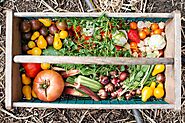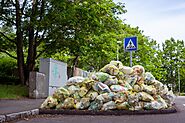-
About
- About Listly
- Community & Support
- Howto
- Chrome Extension
- Bookmarklet
- WordPress Plugin
- Listly Premium
- Privacy
- Terms
- DMCA Copyright
- © 2010-2025 Boomy Labs


 Arthur Wilson
Arthur Wilson
Listly by Arthur Wilson
Living a more sustainable lifestyle is required for protecting the planet for future generations. Virtually everything you do and enjoy in life, from the food you consume to the way you travel to work, impacts Earth in some way.
While you don’t have to jump completely into a 100% eco-friendly lifestyle, there are various small changes you can make to play your part in helping the environment. Below are ten examples!

Reduce air pollution and carbon emissions by shopping locally. By staying close to home, there’s the possibility to avoid driving altogether. Instead, get to your destination comfortably by walking, biking, or public transportation.

A composting toilet is one of the most unique – and effective methods for living more sustainability. First of all, it saves on water usage, which also reduces your bills. Additionally, you can use the organic waste to produce compost – something that can go towards growing your own plants and vegetables.

If you cannot avoid the daily commute by car, consider upgrading your current gas guzzler with an electric vehicle. Electric transport is on the rise for numerous reasons. Along with lowering emission rates and helping the environment, recharging an electric car is significantly cheaper than its petrol counterpart.

When you grow your own vegetables and fruit at home, pesticides are not utilised – and this means there’s less contribution to air and water pollution. Furthermore, it helps in lowering fossil fuel usage for transporting goods to supermarkets and other food retailers.

One of climate change’s biggest contributors is meat production. Add in its contribution to waterway and landscape pollution, and there are numerous reasons why eating less meat contributes to a more sustainable world.

Rather than use gas and coal, go with alternative heating solutions. Now, this doesn’t necessarily mean you have to sit around while wearing multiple layers of clothes. However, switching over to wood stoves and heat pumps can make a huge difference.

In this day and age, there’s no need to use as much paper as you once did. Rather than receiving letters by post, opt to get them sent by email if possible. Also, limit printing any documents unless absolutely necessary.

By now, you will likely understand the damage single-use products can cause to the environment and wildlife. Instead of having the likes of single-use plastics ending up in the ocean or landfill, go with eco-friendly alternatives when possible.

Another way to avoid unnecessary waste is, rather than throwing away your unwanted possessions, you donate these items to a local charity shop. By going to a new home, this extends the life of these items.

Your tendency might be to simply throw away any leftover food. Instead of doing that, save these leftovers and either consume them the next day or freeze them for the future. Plus, if they go off, use any suitable food as compost.
